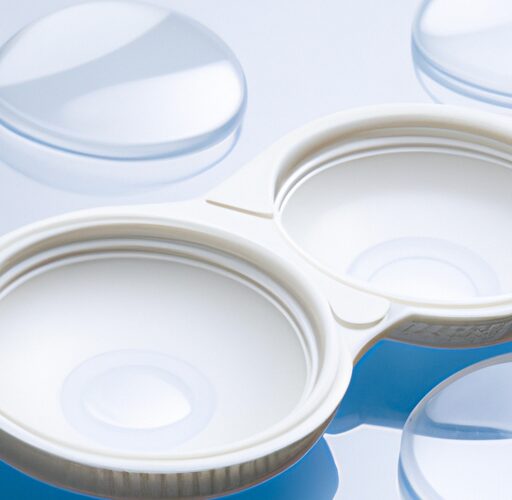Accidentally Slept in Your Contacts? Don’t Panic!
The Importance of Taking Out Your Contacts Before Bed
Let’s face it, taking out your contacts before bed can often feel like a chore. After a long day at work or school, the last thing you want to do is spend another few minutes removing your lenses.
However, leaving your contacts in overnight can be extremely harmful to your eyes. Your eyes need oxygen to stay healthy, and wearing contacts limits the amount of air that can reach your corneas. Additionally, sleeping in contacts increases the risk of developing an eye infection.
What to Do If You Accidentally Sleep in Your Contacts
If you wake up realizing you have slept in your contacts, don’t panic! The first thing you should do is remove them immediately. Make sure to thoroughly clean and disinfect your lenses before wearing them again.
Next, pay close attention to any changes in your vision or discomfort in your eyes. If you experience any redness, irritation, or pain, schedule an appointment with your eye doctor as soon as possible. They can examine your eyes and determine if any damage has been done.
Preventing the Problem in the Future
Of course, the best way to avoid sleeping in contacts is to take them out before bedtime. If you’re prone to forgetting, try creating a routine that includes removing your lenses every night. Keep a travel-sized bottle of contact solution on your nightstand to make the process easier.
Additionally, consider investing in extended-wear contacts that are specifically designed to be worn overnight. These lenses allow more oxygen to reach your eyes, reducing the risk of infection and damage.
Final Thoughts
Sleeping in your contacts can happen to anyone, but it’s important to take steps to prevent it from happening again in the future. Make sure to always remove your lenses before bed, invest in contacts designed for extended wear, and pay attention to any changes in your eyesight.
And remember, if you do accidentally sleep in your contacts, don’t panic! Simply remove and disinfect your lenses, and schedule an appointment with your eye doctor if necessary. Your eyes will thank you.

